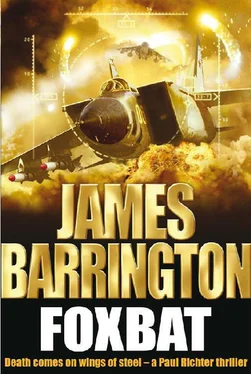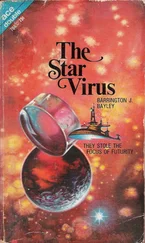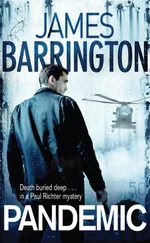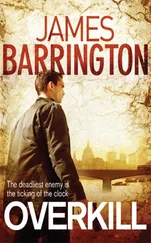‘Unless you can guarantee to eliminate every single missile and aircraft the DPRK owns, before the dust has settled Pyongyang will have launched whatever they’ve got left – nuclear, chemical, biological or otherwise – straight at Seoul and killed half the population of South Korea. And in the eyes of the world it would be our fault for launching an unprovoked attack. We’d be censured by every nation on Earth, and the reparations we’d be forced to pay could bankrupt us.’
The silence that followed was broken finally by the President himself. ‘Well, General? I think the Agency has made a valid point. Could you actually guarantee to destroy every single North Korean missile and aircraft?’
‘Obviously not,’ Sterling muttered, fuming.
‘Right,’ the President said crisply, ‘so let’s look at our other options. If a first strike is out, what can we do, apart from just standing by and watching? Mr Hicks?’
The ADD had expected this question, but hadn’t anticipated that he himself would be the one it was directed at. ‘I’m an intelligence professional, Mr President, not a military officer. Therefore I’m not the best-qualified person to answer you.’
‘No, but I’d still be grateful for your input.’
Hicks ran through the options in his head. ‘Well, I think we should maintain our present high state of alert. That means keeping the bombers in the air and the missiles at short notice for release, and we should tell Pyongyang that we’re doing so. I think that’s important because it will show them that we’re not going to let them get away with any offensive actions. I’d also suggest sending a couple of Aegis cruisers to the Sea of Japan as soon as possible, to engage any missiles the North Koreans do decide to launch.’
Sterling interrupted him. ‘The Enterprise Carrier Battle Group includes the Leyte and McFaul , both Aegis guided-missile destroyers. But the Japanese have four Kongõ -class destroyers, a modified version of our Arleigh Burke design with the same system on board, and they’re currently a lot closer.’
The President shook his head. ‘Sorry, Don, I’ve already talked to the Japanese Prime Minister, and he’s not prepared to commit any of his own forces at the moment. He doesn’t want to risk provoking Pyongyang, and he thinks stationing a couple of Japanese destroyers close enough to the east coast of North Korea to intercept missile launches would be seen as provocative. I might not agree with his position on this, but I can’t argue with that reasoning. Anything else, Walter?’
‘We’ll also need the military ready to roll in case the North Koreans do decide to cross the DMZ. I presume you’ve already organized reinforcement troops, General?’
Sterling nodded. ‘Of course, but the logistics of the situation mean it will still be several more days before the first ships are ready to sail, and then they obviously have to make a lengthy transit.’
‘How long?’ the President demanded. ‘The last briefing I received suggested two weeks in total.’
‘We can probably improve slightly on that, sir. The latest estimate is ten days from today to the first of our reinforcement troops landing in South Korea.’
‘So if Pyongyang decided to mount a conventional invasion and troops crossed the DMZ tomorrow, say, there’d be nothing we could do to stop them, and we wouldn’t have enough reinforcements on the peninsula to start pushing them back for nearly two weeks. We’d expect our subsequent campaign to occupy North Korea to last a minimum of a month, assuming, of course, that neither side resorted to the use of nuclear weapons or other WMD. And that’s presuming we could manage to dig the North Korean forces out of their bunkers.’
‘That’s a fair summary, sir,’ Sterling responded, ‘though we could certainly use the bombers out of Andersen to slow their advance. The Korean terrain means that any war in the peninsula is going to be won or lost on the ground. Air superiority helps, obviously, but it’s not the decisive factor that it would be in, say, a European or Middle Eastern conflict.
‘The timescale for our campaign in response to an invasion is a real flexible feast because the question of WMD adds a different dimension. The use of these weapons could radically affect the outcome of any campaign in Korea. Whether or not the Agency’s right in its belief’ – Sterling’s tone clearly suggested that he considered this a very remote possibility – ‘that Pyongyang is trying to play some complicated game using nuclear blackmail to neutralize our likely response, we do already know that the country has the capability to detonate nuclear weapons.’
‘We’re not yet convinced,’ Hicks interjected, ‘that the missile they fired was actually carrying the weapon that exploded.’
‘Nor am I,’ Sterling agreed, ‘but I don’t believe we can dismiss the possibility. This is a difficult assessment, sir, but we do know the North Koreans have produced working chemical munitions small enough to be delivered by artillery pieces, so they clearly have some expertise in the field. And that’s another factor. Their chemical agents include adam-site, phosgene, prussic acid, sarin, tabun and several variants of the mustard gas used back in the First World War. We believe they’ve got at least five thousand tons of chemical munitions in storage, mainly in mountain tunnels that are invulnerable to attack except from something like a cruise missile. And we probably wouldn’t want to hit them because of the risk of spreading the very agent we’re trying to destroy.
‘They’ve done less work on biological weapons because of the danger to their own population if they deployed them, but we do know they’ve developed weaponized strains of anthrax, bubonic plague, cholera, smallpox and yellow fever. Because we don’t know exactly how they’ve engineered these bioweapons, we can’t develop vaccines or inoculate our forces against them, so we’d have to rely on full NBCD suits and masks for protection. And that would make the physical fighting of this war a lot more difficult – the suits are effective, but they’re very cumbersome, and the masks can cause problems with communication systems.’
‘Are you really saying we might not win a war against them, if it came to that?’ the President asked.
‘No, sir. We have the technology and the resources to defeat them, that’s not in doubt, but it won’t be easy. The North Korean conventional forces are imposing enough. Add their probable willingness to scatter chemical and biological munitions over the battlefield, or even use nuclear weapons, especially if they’re being forced to retreat, and you’ll appreciate that we could face a long, bloody and very costly campaign. If we do end up fighting another war in Korea, my personal belief is that we should be thinking at least in terms of months, not weeks, before we could bring it to a conclusion. And it could very easily turn into another Vietnam.’
The last sentence clearly hadn’t pleased the President. ‘So what do you suggest?’
‘I think we may have to consider the use of tactical nuclear weapons at an early stage in the conflict, preferably after the North Koreans have employed some kind of weapon of mass destruction, so that America will be seen as defending South Korea against an unprovoked attack, but we should also be prepared to use them in a first strike, as that should ensure the campaign will be finished quickly, with a minimum loss of American or South Korean lives.’
The President turned in his seat to look at the Secretary of Defense. ‘Do you agree with that assessment?’
‘I’ve no doubt the general’s right about Pyongyang’s chemical and biological arsenal, and I believe they’d resort to using any and all weapons at their disposal if they thought they were losing the war. I think we should be prepared to employ whatever force is necessary to stop a North Korean attack, and that should include tactical and possibly even strategic nuclear weapons.’
Читать дальше












